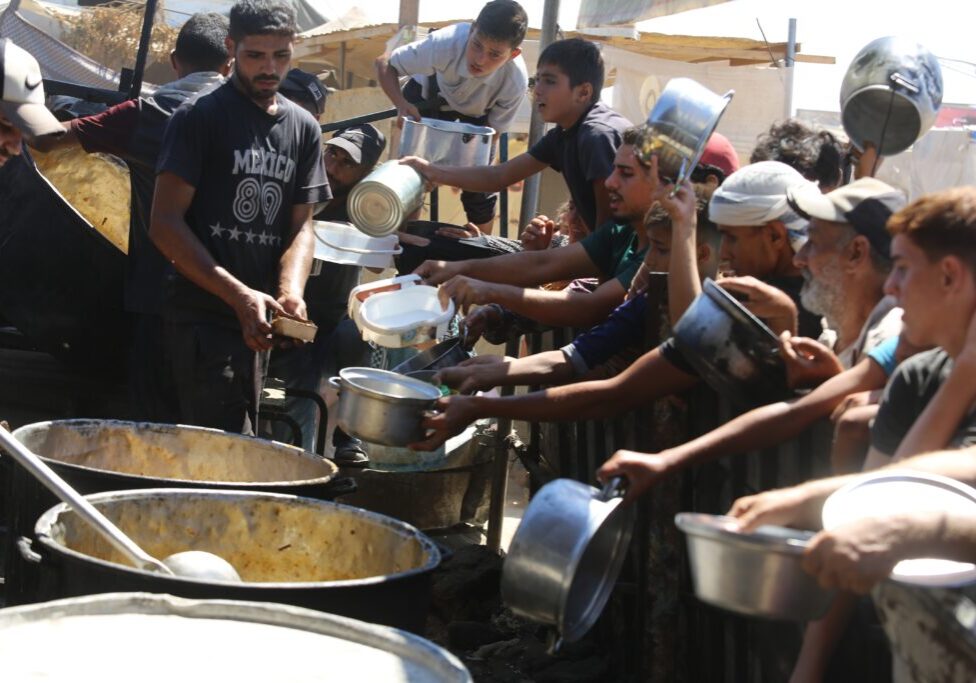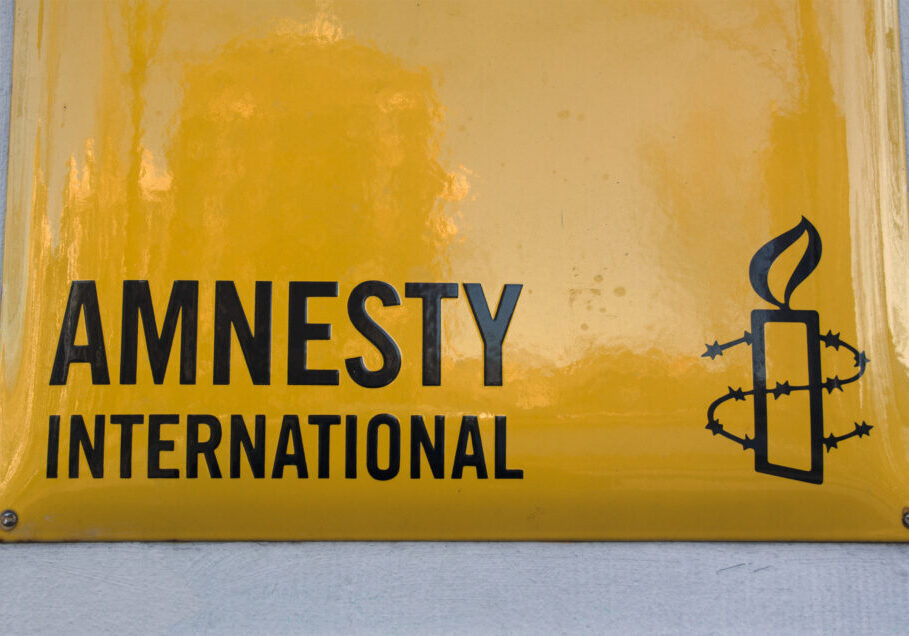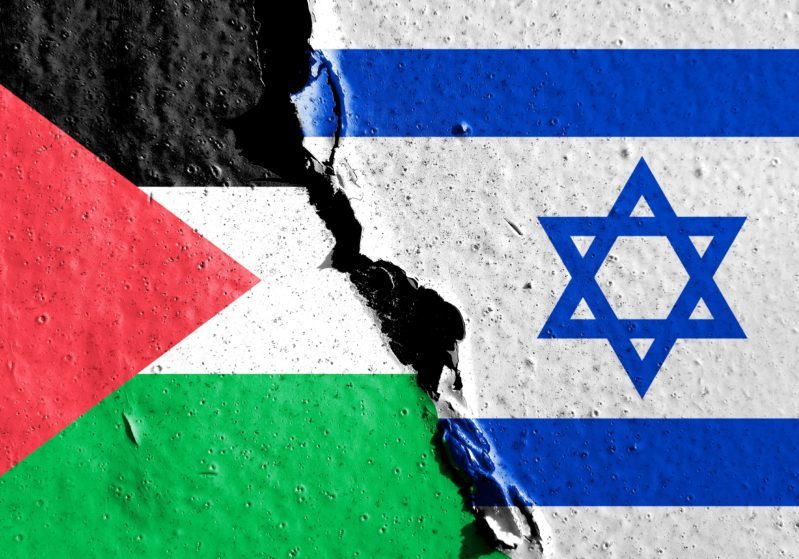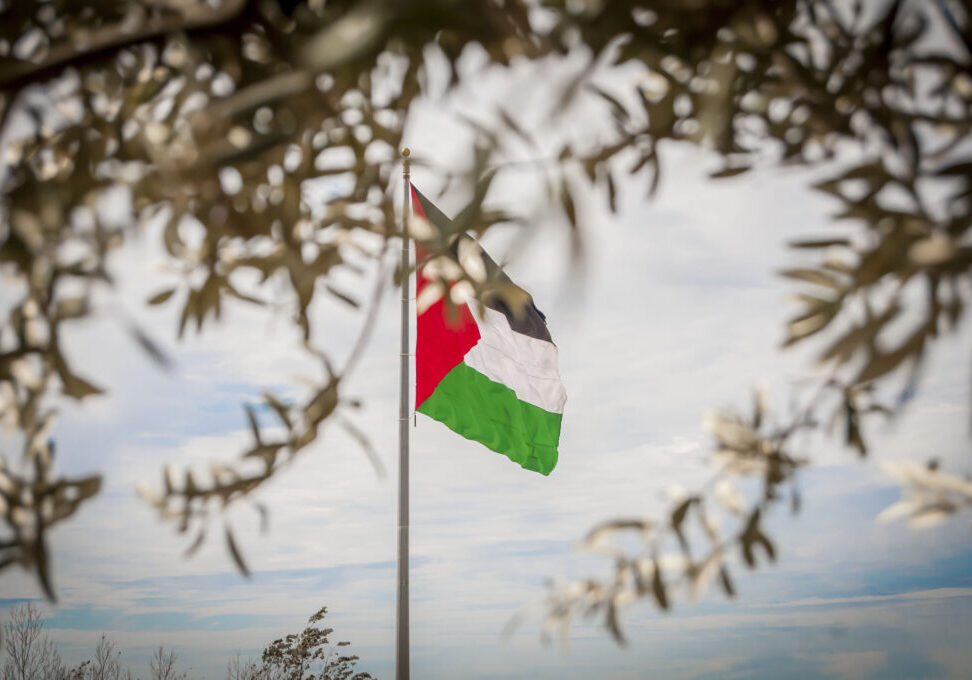Australia/Israel Review
Lessons from the arrest of a Palestinian icon
Feb 7, 2018 | Khaled Abu Toameh
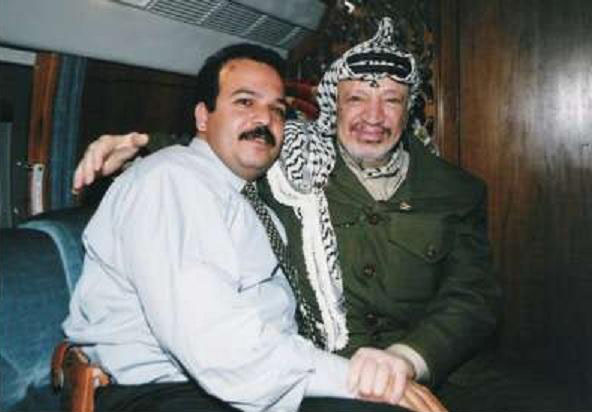
Most people probably do not know him by name, but the image of Mohammed Al-Dayeh was a public one for many years. The tough-looking, moustachioed man in military garb served as the trusted bodyguard of former PLO leader Yasser Arafat.
His proximity to Arafat turned Al-Dayeh into one of the most powerful figures in the PLO leadership, especially during the 1990s and 2000s. If you wanted anything from Arafat – from money to springing your son from prison – Al-Dayeh was your man.
He was glued to Arafat night and day. He accompanied him on his persistent globe-trotting. You can hardly find a photo of Arafat without Al-Dayeh. Insiders say Arafat “adopted” him after he was orphaned from his parents during the civil war in Lebanon.
Al-Dayeh’s fall from grace was rapid once his boss, Arafat, died in 2004. This is typical for dictatorial regimes that are run as a one-man show. Arafat managed the Palestinian Authority (and PLO) as if it were his private fiefdom. When the emperor falls, so do many of those around him, particularly his personal picks.
In late December Palestinians were surprised to learn that the man who was an icon of power of the Arafat era was now being held in detention in a Palestinian Authority prison in Ramallah. Reports about the incarceration of Al-Dayeh first appeared on social media, and many Palestinians were convinced that these were just rumours and gossip. How could the man once so loved by Arafat be behind bars? What crime did Al-Dayeh, who holds the rank of “brigadier-general” in the Palestinian Authority, commit?
The talk that Al-Dayeh would soon be prosecuted before a Palestinian Authority “military” court aroused further surprise. Was the former bodyguard arrested, many wondered, for committing a serious security-related offence?
Speculation on the Palestinian street even reached the point of considering whether Al-Dayeh was being charged with spying for Israel. Or, perhaps this was the man who had put the “poison” in Arafat’s soup and which, according to the conspiracy theorists, led to the death of their beloved leader and hero – Arafat.
For years, Palestinian leaders and officials have been telling us, without any evidence, that Israel was behind the “assassination” of Arafat and that it was carried out with the help of a Palestinian, whose identity remains unknown to this day. Could it be, they wondered, Al-Dayeh?
None of the above. Al-Dayeh apparently did not commit any crime against Palestinian security. Nor was he involved in the “assassination” of his father figure and boss.
According to Al-Dayeh’s lawyer, Rawya Abu Zuheiri, her client is suspected of “bad-mouthing” senior officials and criticising corruption of Palestinian leaders on Facebook.
Al-Dayeh, she said, has been under interrogation on suspicion of establishing and managing two Facebook pages – “Sons of the Martyrs” and “No to Corruption.” The Palestinian Authority claims that both accounts were used to wage a smear campaign against top Palestinian officials and accuse them of financial and administrative corruption.
Such are the main charges against Al-Dayeh, according to his lawyer. He has been ordered remanded into custody for 15 days for violating the Palestinian Authority’s controversial Electronic Crimes Law.
His lawyer, however, says there is only one small problem regarding the charges against Al-Dayeh: The man cannot read or write, and as such there is no way he could have posted the offensive remarks on Facebook. In other words, the lawyer is telling us that the man who was entrusted with the personal security of Arafat and was his closest confidant is illiterate.
Al-Dayeh is understandably upset by his detention. In response to the humiliation, he has gone on a hunger strike. Some reports, which seem to be deliberately exaggerated, claim that Al-Dayeh’s health condition has deteriorated as a result of the hunger strike.
The real story here, however, is not about Al-Dayeh the man. This is about freedom of speech and corruption in the Palestinian Authority. It is about how Palestinian leaders are suppressing any form of criticism.
Al-Dayeh may not be a saint, but his arrest is aimed at sending a message to Palestinians that no one is immune from the long arm of the Palestinian Authority. You can be the most decorated Palestinian and a symbol of the Arafat era, but once you criticise Palestinian leaders or write about corruption, you will find yourself behind bars and facing military trial.
Al-Dayeh is the latest victim of Abbas’ Electronic Crimes Law, which grants his security forces wide powers to clamp down on Facebook and Twitter users who dare to express their critical views of Palestinian leaders in public.
Several journalists and political activists have already been arrested or summoned for interrogation on suspicion of violating the new law. Consequently, many Palestinians are today afraid to post any comment on social media that could hurt the feeling of a senior official sitting in Abbas’ headquarters in Ramallah.
Al-Dayeh is far from the main protagonist here – although his personal story might make for interesting reading. This is about the silencing of critics. This is about human rights violations perpetrated not only by the Palestinian Authority, but by Hamas as well. This is about how Palestinian leaders continue to march their people towards yet more harm and grief. This is also about the ongoing failure of the international community to note any of the above. Al-Dayeh is just a bit player, then, in a much, much greater dictatorial drama.
Khaled Abu Toameh is an award-winning Palestinian affairs journalist based in Jerusalem. Reprinted from the Gatestone Institute (www.gatestoneinstitute.org). © Khaled Abu Toameh, reprinted by permission, all rights reserved.
Tags: Palestinians


